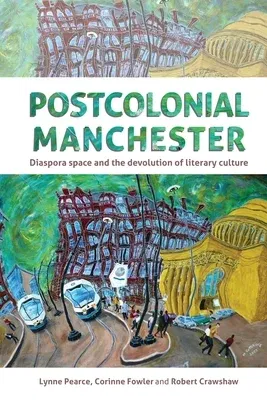Postcolonial Manchester offers a radical new perspective on Britain's
devolved literary cultures by focusing on Manchester's vibrant,
multicultural literary scene. Referencing Avtar Brah's concept of
'diaspora space', the authors argue that Manchester is, and always has
been, a quintessentially migrant city to which workers of all
nationalities and cultures have been drawn since its origins in the
cotton trade and the expansion of the British Empire. This colonial
legacy - and the inequalities upon which it turns - is a recurrent motif
in the texts and poetry performances of the contemporary Mancunian
writers featured here, many of them members of the city's
long-established African, African-Caribbean, Asian, Chinese, Irish and
Jewish diasporic communities. By turning the spotlight on Manchester's
rich, yet under-represented, literary tradition in this way,
Postcolonial Manchester also argues for the devolution of the canon of
English Literature and, in particular, recognition
for contemporary black and Asian literary culture outside of London.
The book is organised around those predominant literary modes that have
dominated Manchester's literary scene over the past forty years: namely,
crime fiction, mixed-genre anthologies and 'poetry in performance'. In
addition, it seeks to capture Manchester's distinctive postcolonial
identity through a wide-ranging exploration of its history, literature
and popular culture, while exploring the challenges involved in
publishing Manchester's black and Asian writers. Throughout the volume,
the discussion is concerned with the production and consumption of the
texts as well as their subject matter. The book concludes by detailing
in-depth interviews with several of the writers featured elsewhere in
the volume.
This book will be of interest to students and scholars working in the
fields of contemporary literary and postcolonial studies, as well as
general readers with an interest in Manchester.

